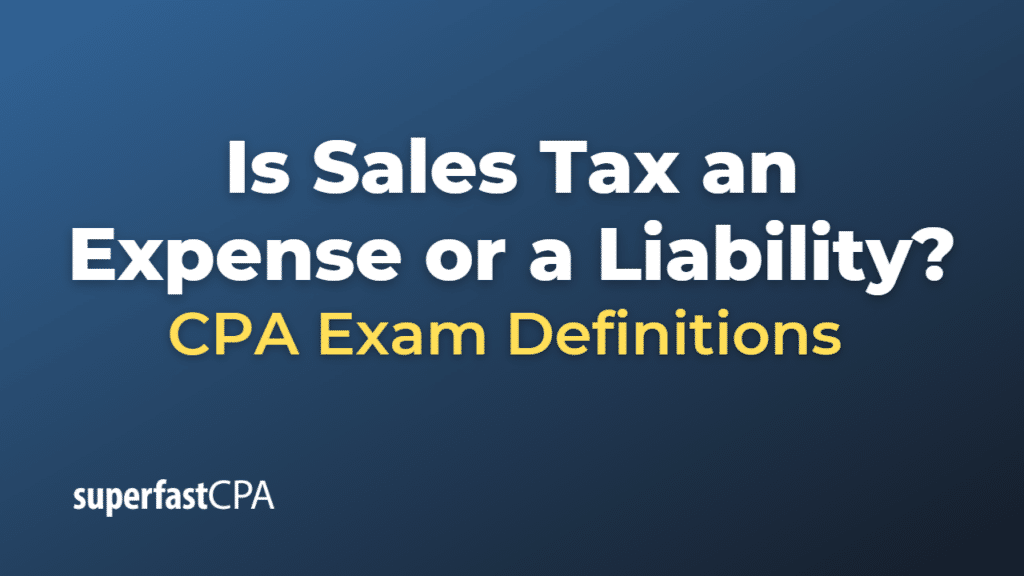Is Sales Tax an Expense or a Liability
Sales tax is generally considered a liability, not an expense, for a business.
When a business collects sales tax from customers, it’s doing so on behalf of the government. The business is the custodian of these funds until they’re paid to the appropriate government entity (usually a state or local government in the U.S.). Therefore, until the business remits the sales tax to the government, it records the collected amount as a current liability on its balance sheet, typically under “Sales Tax Payable” or a similar account.
It’s important to note that sales tax does not represent a cost of doing business; instead, it’s a pass-through from the customer to the government. Hence, it doesn’t appear as an expense on the company’s income statement.
However, if we’re talking about sales tax that a business pays on its own purchases, this can be recorded as an expense or as part of the cost of the purchased asset, depending on the nature of the purchase and applicable accounting policies.
Example of: Is Sales Tax an Expense or a Liability
XYZ Retail Store sells an item for $100. The sales tax rate is 10%. So, the total amount the customer pays is $110 ($100 for the item plus $10 in sales tax).
In its accounting records, XYZ Retail Store would make the following entries:
- Debit Accounts Receivable (or Cash, if the sale is for cash) for $110. This increases the store’s assets.
- Credit Sales Revenue for $100. This increases the store’s revenue.
- Credit Sales Tax Payable (a liability account) for $10. This increases the store’s liabilities.
Later, when XYZ Retail Store remits the $10 in collected sales tax to the government, it would make the following entries:
- Debit Sales Tax Payable for $10. This decreases the store’s liabilities.
- Credit Cash for $10. This decreases the store’s assets.
As you can see from this example, the sales tax collected from customers increases the Sales Tax Payable liability account until it’s paid to the government. At no point is the sales tax recorded as an expense because it doesn’t represent a cost of doing business—it’s merely a pass-through from the customer to the government.













